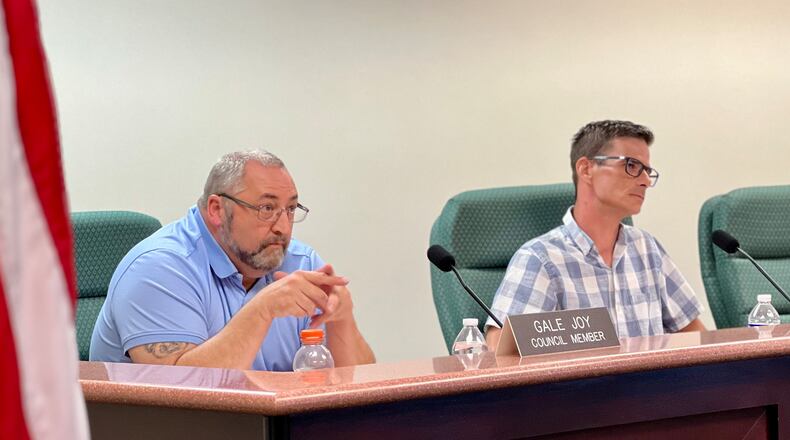Joy filed the original complaint in the Ohio Court of Claims in June, accusing multiple New Lebanon officials of unlawfully denying multiple requests for records relating to the compensation of McNamee, who has served as acting law director since early 2024.
The records requests were denied multiple times, with McNamee claiming his invoices are considered “work product and subject to attorney-client privilege” and, therefore, not subject to disclosure under public record law.
But Joy pushes back against this assertion in his response to McNamee’s dismissal request.
“(Attorney-client privilege) protections limit disclosure to the public, not to the governing body that is the client,” Joy’s response reads. “As a duly elected member of the village council, (Joy) is part of the entity that holds the privilege, directs legal strategy, and bears statutory responsibility under (Ohio Revised Code) and the New Lebanon Charter for the management and control of the village’s finances.”
McNamee also argued Joy had taken an “adversarial posture” toward the village, accusing him of acting in opposition to the village’s legal interests.
Joy is a material witness in other pending litigation against New Lebanon, namely the ongoing court cases between the village and former employees Curtis Hensley and Glena Madden, both of whom were fired by the village in early 2024.
But Joy’s response asserts his motive for requesting the payment records is legally irrelevant.
“(A) person may inspect and copy a public record ... irrespective of their purpose for doing so,” the response opines. “Allegations of ‘alignment’ with litigants or perceived hostility cannot strip a council member of their statutory and charter-based oversight rights.”
Joy is urging the court to deny the village’s motion to dismiss and to order the release of the requested records.
“The court should order disclosure of the unredacted billing records/invoices to (Joy) in his capacity as a member of the governing body, or in the alternative, conduct an in-camera review to determine the proper scope of any permissible redactions,” his response reads.
About the Author

